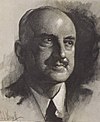


Reddit meter
On the Nature of Things
224 pages, 2001
Lucretius explains the universe in terms of atoms and void. He suggests that everything in the world is made up of these tiny particles. This is a great chance to explore the early concepts of atomic theory.
One of the key points in On the Nature of Things is the idea that death is not to be feared. Lucretius argues that since we won't be conscious after death, there's no reason to fear it. This can be a comforting perspective to consider.
Lucretius challenges the role of religion and superstition in society. He believes that these beliefs often lead to fear and misunderstanding. If you're interested in the intersection of philosophy and religion, you'll find his arguments thought-provoking.
In the book, he advocates for the pursuit of pleasure and avoidance of pain. However, he also emphasizes that not all pleasures are beneficial, and not all pains are harmful. This can inspire you to reevaluate your own approach to happiness and well-being.
Lucretius places a high value on reason and knowledge. He believes that understanding the natural world can free us from unnecessary fears and superstitions. This is a great reminder of the importance of critical thinking and learning.
Quotes 5
I consider the doctrines of Lucretius as the most rational system of philosophy or ‘Naturalism’ ever taught, and the most suited to the advancement of the human mind.
 Thomas Jefferson - 3rd U.S. President
Thomas Jefferson - 3rd U.S. PresidentLucretius' work is the first breath of this beautiful and brave world which we have known.
 Michel de Montaigne - Renaissance philosopher
Michel de Montaigne - Renaissance philosopherLucretius' poem... is a work of genius, in which philosophy, poetry, and piety are joined.
 Pierre Gassendi - French philosopher
Pierre Gassendi - French philosopherLucretius is a kind of Epicurean angel, a messenger from the realm of serene wisdom.
 George Santayana - Spanish philosopher
George Santayana - Spanish philosopher Charles Darwin - Evolution theory
Charles Darwin - Evolution theory











